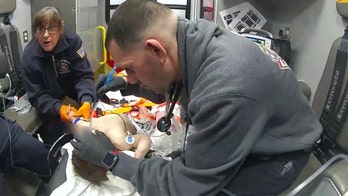The city of St. Petersburg, Florida, is actively combatting the opioid crisis by investing $1 million from an opioid settlement into nonprofit organizations dedicated to providing critical treatment and recovery support services. This substantial allocation aims to fill service gaps and fund innovative approaches to address the growing need for addiction assistance in the community.
St. Petersburg, a coastal city in Florida, is taking a proactive stance against the devastating opioid epidemic by allocating $1 million from an opioid settlement to support nonprofit organizations working tirelessly to address the crisis. This substantial investment is part of a broader $6 million settlement received over 18 years as part of ongoing efforts to hold accountable those responsible for fueling the opioid epidemic.

St. Petersburg Allocates $1 Million from Opioid Settlement for Treatment and Recovery
The city aims to bridge resource gaps within the community and allocate the funds to innovative proposals that are not currently covered by existing sources. The focus will be on programs offering respite housing, overdose prevention, substance use prevention and education, harm reduction, and peer support. Priority will be given to initiatives emphasizing respite housing, harm reduction, and peer support, as these areas have been identified as critical needs.
Nonprofit organizations play a vital role in providing essential services to individuals and families affected by addiction. Matthew Schaefer, director of operations for Real Recovery Solutions, expressed the urgent need for additional resources in the face of rising addiction rates. While Real Recovery Solutions is ineligible for direct grant funding, they collaborate with nonprofits that can utilize the funds to sponsor individuals seeking recovery support.

St. Petersburg Allocates $1 Million from Opioid Settlement for Treatment and Recovery
One of the pressing concerns highlighted by Schaefer is the accessibility and affordability of detox treatment. Many detox centers operate on a private funding model, requiring full payment or insurance, which creates barriers for uninsured individuals. Additionally, waitlists for detox beds can be extensive, leaving individuals vulnerable during a critical phase of their recovery journey.
The grant program will prioritize proposals that offer respite housing, providing individuals with a safe and supportive environment during the early stages of recovery. It will also support overdose prevention measures, substance use prevention education programs, harm reduction strategies, and peer support initiatives that empower individuals in recovery.

St. Petersburg Allocates $1 Million from Opioid Settlement for Treatment and Recovery
Schaefer emphasized the potential impact of the grant funding in bridging the gap between the need for detox treatment and available resources. "Non-profits will fund maybe two to three weeks of sober living. And give that recovering addict a chance to go find a job and start paying their own rent," he said.
Nonprofit groups have until October 20, 2023, to submit grant applications outlining their proposed programs and services. The city of St. Petersburg will carefully review each proposal based on its alignment with the outlined priorities and its potential to make a meaningful impact on the community's fight against the opioid crisis.

St. Petersburg Allocates $1 Million from Opioid Settlement for Treatment and Recovery
This $1 million investment reflects St. Petersburg's commitment to addressing the devastating toll of opioid addiction. By supporting nonprofit organizations on the frontlines of recovery efforts, the city aims to provide critical support to individuals and families struggling with addiction and empower them on their path to long-term recovery and well-being.










